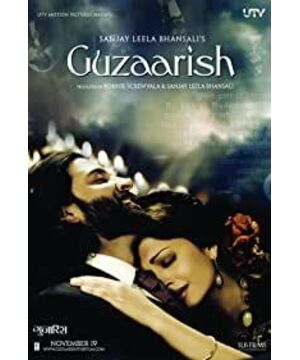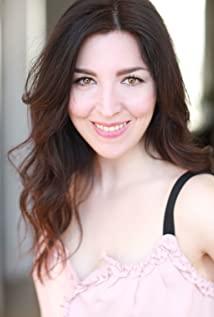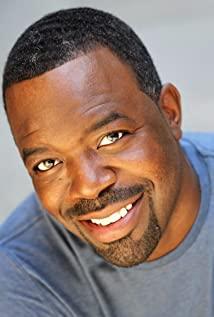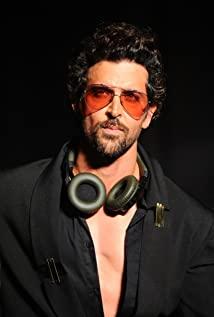"I die while he sleeps. Two sleeps can be neighbors."
This line from Les Misérables flashed through my mind when I saw Ethan's mother die.
In Hugo's eyes, death is just eternal sleep.
We like to say to others: unhappy? Just go to sleep...
Ethan is really after sleep. Only, he pursues eternal sleep.
However, people are far from being as tolerant of death as they are to restful sleep. In wave after wave of opposition, we have seen people's almost paranoid obsession with life. The judge's final judgment is obviously the modern society's view of euthanasia: absolutely NOT.
As for myself, of course, I can't draw a conclusion. Humans have created many rules: morality and ethics, but in the end they negated them one by one, allowing them to establish new concepts. Most of us are also just follow-throughs. Time will give a human verdict, although it is a very variable verdict.
But for now, it can be considered an objection.
The second character
Ethan
, as the movie says, is definitely a fighter. From the top of magic
On the throne of the peak, he was beaten into an endless abyss of pain by others in such a despicable way. For more than ten years, with perseverance and will that cannot be expressed in words or pictures, he has published books and established radio programs, used his own broken life to experience the pain of others' lives, and saved others from the brink of psychological collapse and suicide. But he is also a man of flesh and blood, he wants to think, he wants to be angry, he wants to vent. He's been through so much pain that he needs to be crazy. Of course, this was not something everyone could understand, not even Sofia, who was by his side every day. He understands that death is immoral in the traditional sense, and has tried his best to avoid it for more than ten years, but the day when an active volcano will erupt, the accumulation of pain makes him really unbearable, and he "seeks his own death" without any regrets. However, when he is in pain, he is still full of life's taste, humor and a little "bad". Constantly "teasing" (joking, of course) Sofia, even in court with undiminished humour. He knew Sofia's love for him, but wisely chose to "play stupid", because he understood that for a married Sofia, the original relationship was much better than a public lover (of course, this is just a personal opinion).
Ethan's mother
is the character that impressed me the most in the whole film. As a mother, she expected a long pause and a vague affirmative answer when answering the prosecutor's poignant question about whether she would personally help her son take his own life. In the film, she unexpectedly answers directly, clearly and clearly: Yes. She had long thought that one day she would have to make a choice, and she knew that her choice would be decisive for the judge or her son's choice. The son was paralyzed for so many years, and he never let his mother live with him. It is good for a son to do his best to keep his mother from suffering, but few mothers understand and obey their sons so thoughtfully and without complaint. And in court, looking at her son in pain, she sheds determined tears - I fully support my son. I think the mother played an extremely important role in ethan being so open-minded.
The judges in the judge
film more represent the general concept of society. For this story, he is neither positive nor negative, just a serious answer - yes or not. His verdict dictates the direction of the whole story and the main line of the film.
The final judge's decision, as mentioned above, also reflects the general negative view of euthanasia in contemporary society.
Prosecutors
personally believe that the image of prosecutors more symbolizes some lawmakers and arbitrators. They stick to the law and are reluctant to innovate. Do everything possible to cover up their omissions but ignore the suffering of the people because of these unreasonable laws.
Some listeners who voted "no",
some bystanders who made blind assertions without putting themselves in the shoes of observing things, they judged things they didn't understand deeply based on their momentary self-righteousness, and they even preached clinging. I remember one of them even called ethan a coward. In fact, I think ethan also thinks he is to some extent, but he really can't stand other people's good status and health and rude words on the side. He bared his teeth again, his last display of the weapon of anger. These listeners may not lack thinking, but they lack deep, empathic thinking. They observe things metaphysically, judge what is right from past impressions, and in the end just blindly blame Ethan. Think about it, how can such people be in the minority? Maybe we have done or are doing people like this too?
As for characters such as Cial, I won't go into details one by one.
At the end of the third
, the mother who just came back from outside saw the scene where ethan held a farewell party and a wedding with Sofia at the end, and she said indistinctly:
"Okay, read it, happy ending"
"This person is dying"
looking at ethan Happy face, more and more admiration of human beings full of depth, emotions change in an instant, death can also be connected with happiness.
So the story comes to an end. One detail, what was ethan wearing when he died?
Representing his career, the magician's suit. represent the value of his life.
Dedicated to
the Eternal Ser Merlin
View more about Guzaarish reviews











